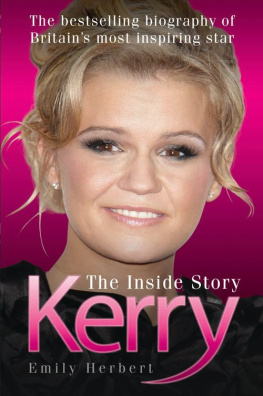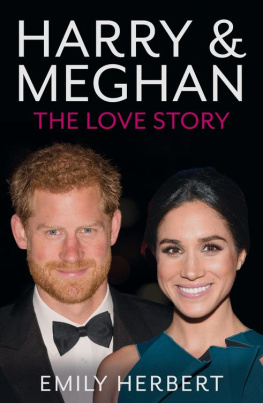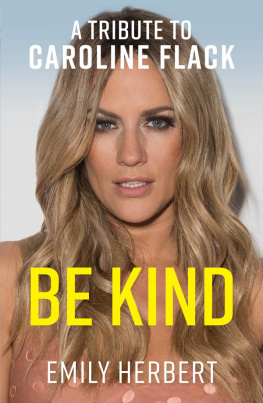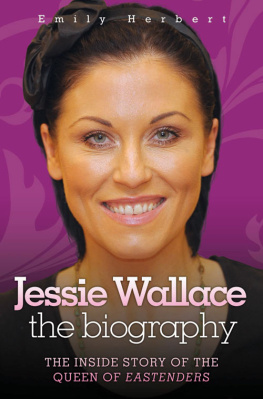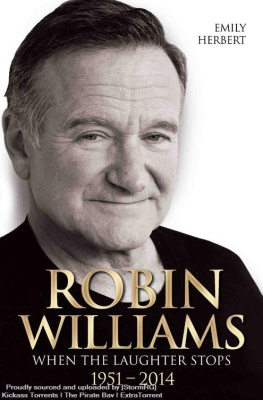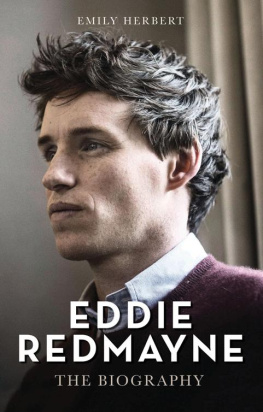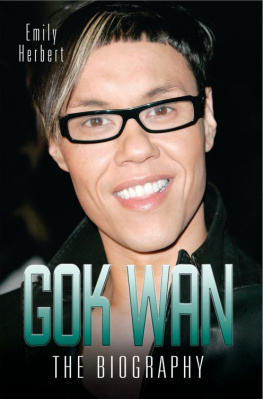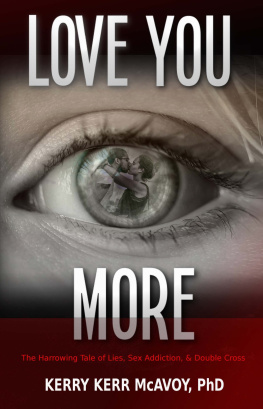K erry Katona was thirteen years old. Quietly minding her own business, she was trying to ignore the shouting going on in the background. But this was more than the usual rows between her mother Sue and Sues violent boyfriend; this was getting quite out of control. First, the boyfriend slapped Sue viciously across the face. Then he turned on Kerry. As both women started screaming, Kerry was sure she was going to die.
Mum and her boyfriend were rowing and he slapped her, Kerry later recalled. The next thing I knew, blood spurted out. Then he turned round to face me. I saw the flash of a blade and I was convinced he was going to kill me. We managed to fend him off until the neighbours came rushing in.
Scenes of chaos and shouting ensued as the neighbours sought to hold him, while both women screamed for help. There had often been rows before, but this one had spiralled totally out of control and the neighbours knew that someone had to take action to protect the pretty schoolgirl and her mother and so, after some agonising, Social Services were alerted.
This was not the first time Social Services in Warrington, Cheshire, had been in touch with the Katonas. Sue had long been known to have mental problems and, although her own mother and sister helped as much as they could, there had long been concerns about her daughter Kerrys welfare. The identity of Kerrys father was and still is a mystery to her; her mothers subsequent marriage seemed, for a while, to provide some sense of stability, but it had long since broken down. Since then, there had been a succession of boyfriends, none of whom were good father or husband material and none of whom were able to provide the security both mother and daughter so desperately craved. And now Sue had found herself with a partner who seemed set on doing herself and her daughter some harm.
And this was to prove the breaking point. Sue was told by Social Services to choose between her daughter and her boyfriend. She chose the latter. I remember thinking, Oh, Mum, couldnt you for once have chosen me over him? Kerry said. But I had to forgive her. No matter what she did, she was all that I had.
Indeed, the bond between the two has always been close and, in the light of Kerrys marriage breakdown, has become stronger still. Neither should Sue be judged harshly; she had a mental illness that blighted much of Kerrys childhood. But it was a harrowing time for both women and it would be some years before Kerry was old enough to make the break from her difficult background and strike out on her own.
Kerry Katona is a survivor. Shes had to be. If the secret of success is an unhappy childhood, then Kerry was destined for greatness from the moment of conception, because her childhood wasnt so much unhappy as horrific. She never knew her father, and her mothers mental illness left her unable to look after her child. Kerry spent years being moved from one foster home to the next, from one refuge to another, all the while desperately seeking a stability that, as a child, she never found.
Now, of course, Kerry is one of Britains most famous celebrities, an ex-Atomic Kitten, an erstwhile Queen of the Jungle and a star. But it has taken incredible strength to overcome her dreadful early years and become one of our best-loved faces. It could all have ended up very differently indeed.
I was so down, Kerry says. I wanted to jump out of windows. I wanted to die. I really did and I just kept thinking I dont know whats going to happen tomorrow. I didnt have a very good childhood but Mum had the worst childhood of all and spent it mostly in care, too. She never really knew how to love, so I lived with my aunties, my stepdad, foster parents and in care homes. It was a very tough time, but it resulted in making Kerry tough, too. There is certainly a vulnerability about her, but it should be no surprise when she bounces back from adversity. Shes had to right from the start.
Kerry Jayne Elizabeth Katona was born on 9 September 1980 in Warrington, Cheshire, and from the very beginning it was clear there would be trouble ahead. Her mother Sue had had an affair with a married man who had other children of his own, which resulted in her falling pregnant. The affair was over by the time the pregnancy was discovered; she was determined, however, to go ahead with it.
Susan was adamant she was going to have the baby, said Betty Katona, Kerrys grandmother, who helped her granddaughter through some of her most difficult times, although her relationship had already ended when she realised she was expecting. Kerrys dad is probably kicking himself now when he sees how well his daughter has done. In a funny way, not having him around has helped Kerry it made her want to do well and make something of her life.
It was a brave decision on Sues part and so she went ahead and had her child. As she was growing up, however, Kerry felt the absence of a father as she began to realise she had only one parent. Indeed, she only discovered that her father was married to someone else when she was eight and, to this day, she has no idea as to his true identity. I started looking at men on the street, wondering if one of them was my real dad, she admitted. She did not, however, try to find him. Maybe its because I couldnt face any more rejection, she said.
But like so many children who do not know the full story behind their past, Kerry has clearly been marked by the experience. For a start, the yearning to know more about her background remained. Ive never known my dad and he never got in touch, she said wistfully on another occasion. But I must look like him because Im not like my mum shes got dark-brown hair and blue eyes and Im blonde with dark-brown eyes. It is a touching remark and a reminder of just how difficult her childhood was. Even today, Kerry retains a deep sense of insecurity even in her adult life as a successful performer. That said, she also has an extremely tough streak, one that has helped her to survive both her childhood and problems in her adult life.
Matters were not helped by the fact that the little family was desperately poor and frequently found themselves with nowhere they could really call home. There was never any money and the duo often had to rely on external agencies for help. When I was a baby, we moved around womens refuges, Kerry recalled. I remember Christmas time in one of them when the Salvation Army came around with a big bag of toys.
On another occasion, the family was so hard up they had to sell their pet parrot to buy essentials. Life was as harsh as it could be and, at that stage at least, the future seemed destined to be bleak. With disadvantages like these to overcome, it takes a will of iron to break free.
Eventually, Sue moved with her daughter to a tiny council flat, which was so small that they had to share a bed. But that did not herald the end of their problems; the years of dreadful insecurity had taken their toll and Sues health was worsening. When Kerry was three, she made a traumatic discovery that her mother, who was by now twenty-three, had been slashing her wrists. It was an awful discovery for a child to make, especially one so young, but Kerry, as she always did, somehow managed to cope. Indeed, she was and remains completely forgiving of her mother for all the problems she endured as a child.
I always knew Mum loved me, but life wasnt easy for her as she was a depressive, Kerry said in later years. One minute wed be laughing and joking, the next she would be telling me she wanted to die. I found out that shed been slashing her wrists when she once rolled up her sleeves to wash the dishes. Wrapping bandages around her wrists became a part of my life. I knew if I wasnt around, shed be dead. That was a big responsibility for a little girl.
As with so much in Kerrys childhood, it had a profound affect on her later years and her relationship with her mother, which is now stronger than it has ever been. There were almost inevitably, given the circumstances periods of near estrangement when Kerry was growing up, but behind it all was always a very deep affection and an extremely strong bond, which might in part have been promoted by the fact that, even as a very young child, it was Kerry who had to play the maternal role.

